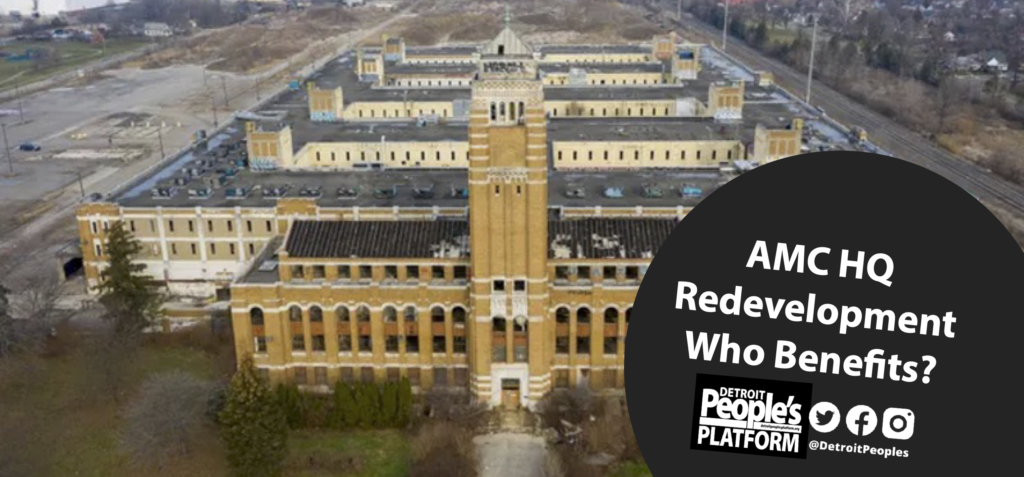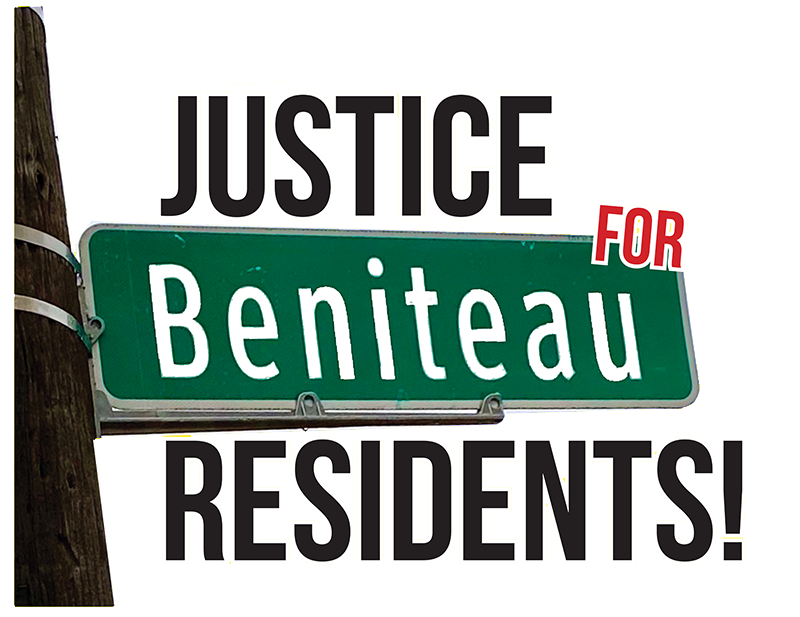April 2022 – During the past two years the Duggan administration has prioritized the expansion of industrial sites as a key economic growth model. Examples include the State Fairgrounds, Cadillac Plant, FCA/Stellantis and the recent AMC Headquarters development. The Mayor’s 2022 State of the City address highlighted a further increase in reindustrialization.
For the most part, the developers of these sites are mandated to fix the environmental issues on the development property. Unfortunately, residents who live in the impact area alongside these developments are left to deal with the negative health and environmental impacts that reduce their quality of life.
In Detroit, many of these sacrifice zones are made possible through zoning policy. Cost to redevelop the sites are offset through tax abatements and brownfield TIFs that access our needed tax dollars.
Communities targeted for reindustrialization still have power to seek more equitable development and racial equity by organizing with their neighbors and demanding a Community Benefit Agreement.
KEY TERMS TO KNOW
Reindustrialization – A policy of stimulating economic growth especially through governmental aid to revitalize and modernize aging industries and encourage growth of new ones.
Impact Area – An area determined by the Planning Director that includes all includes all census tracts or census block groups in which the Project is located and any other areas as determined by the City
Environmental Impacts – Heavy Industrial Development is a lifetime commitment, a marriage between the facility and the residents surrounding it. The share of pollution risk for minority groups exceeds their share of employment and greatly exceeds their share of higher paying jobs.
Health Impacts – EPA: factories highest emitter of noxious gases. Includes: nitrogen and sulfur oxides, hydrogen chloride and hydrogen fluoride gases, and arsenic, lead and other metals. Trucks discharge toxic benzene and toluene from fuel oil. In 2017, a report from the NAACP showed that in Detroit, 2,402 black children have asthma attacks due to natural gas pollution per year and miss 1,751 days of school as a result.
Sacrifice Zones – Majority Black communities in 19 states (including Michigan) are 79 percent more likely to live with industrial pollution than majority white communities.” Existing pollution and industrial land use keeps property values in Black communities low, preventing people of color from building wealth (and power) through property ownership.
Zoning – Zoning allows communities to regulate and control land and property uses. Zoning regulations can stimulate or slow down varying types of development, essentially laying the foundation for citizens’ quality of life.
Tax Abatements – A reduction or elimination of the property tax developers or owners pay on new construction, rehabilitation.
Brownfield Tax Incremental Financing (TIF) – A tax abatement that allows developers to NOT pay property taxes on any increase in their property value over the course of 10-20 years, which, in turn, diverts money away from public budgets to private businesses. The Brownfield TIF was designed to be used for properties that require environmental clean-ups or site remediation but has come to include any and all blighted properties.
Equitable Development – Is an approach to developing healthy, vibrant communities of opportunities shaped by intentional policies and strategies that ensure everyone can participate in and benefit from decisions that shape their neighborhood and region. (Policy Link definition)
Racial Equity – The intentional development of policies and management of public and private resources which results in expanded opportunities for individuals and families of color who experience systemic and structural disadvantages with regard to housing, education, employment, health care, recreation, transportation, and any other community resources that contribute to a quality of life.
Community Benefit Agreement (CBA) – A CBA is a documented agreement outlining a set of programmatic and material commitments that a private developer has made to win political support among residents in the impacted area for particular project that is receiving public investment.

